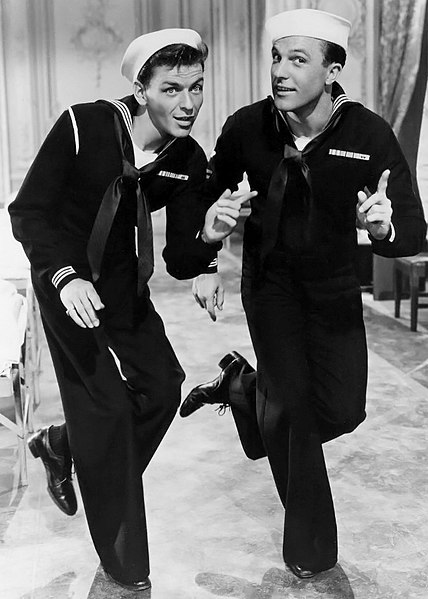Seven Brides for Seven Brothers
Seven Brides for Seven Brothers is a 1954 American musical film, directed by Stanley Donen, with music by Gene de Paul, lyrics by Johnny Mercer, and choreography by Michael Kidd. The screenplay, by Albert Hackett, Frances Goodrich, and Dorothy Kingsley, is based on the short story "The Sobbin' Women", by Stephen Vincent Benét, which was based in turn on the ancient Roman legend of the Rape of the Sabine Women. Seven Brides for Seven Brothers, which is set in Oregon in 1850, is particularly known for Kidd's unusual choreography, which makes dance numbers out of such mundane frontier pursuits as chopping wood and raising a barn. Film critic Stephanie Zacharek has called the barn-raising sequence in Seven Brides "one of the most rousing dance numbers ever put on screen." The film was photographed in Ansco Color in the CinemaScope format.
Theatrical release poster
Drive-in advertisement from 1954
Stanley Donen was an American film director and choreographer. He received the Honorary Academy Award in 1998, and the Career Golden Lion at the Venice Film Festival in 2004. Four of his films have been inducted into the National Film Registry at the Library of Congress.
Donen in 2010
Sinatra and Kelly in Anchors Aweigh
Fred Astaire dances on the walls and ceiling in Royal Wedding, a special effect using a rotating reinforced-steel cylindrical chamber in which to film.
Gene Kelly in Singin' in the Rain






